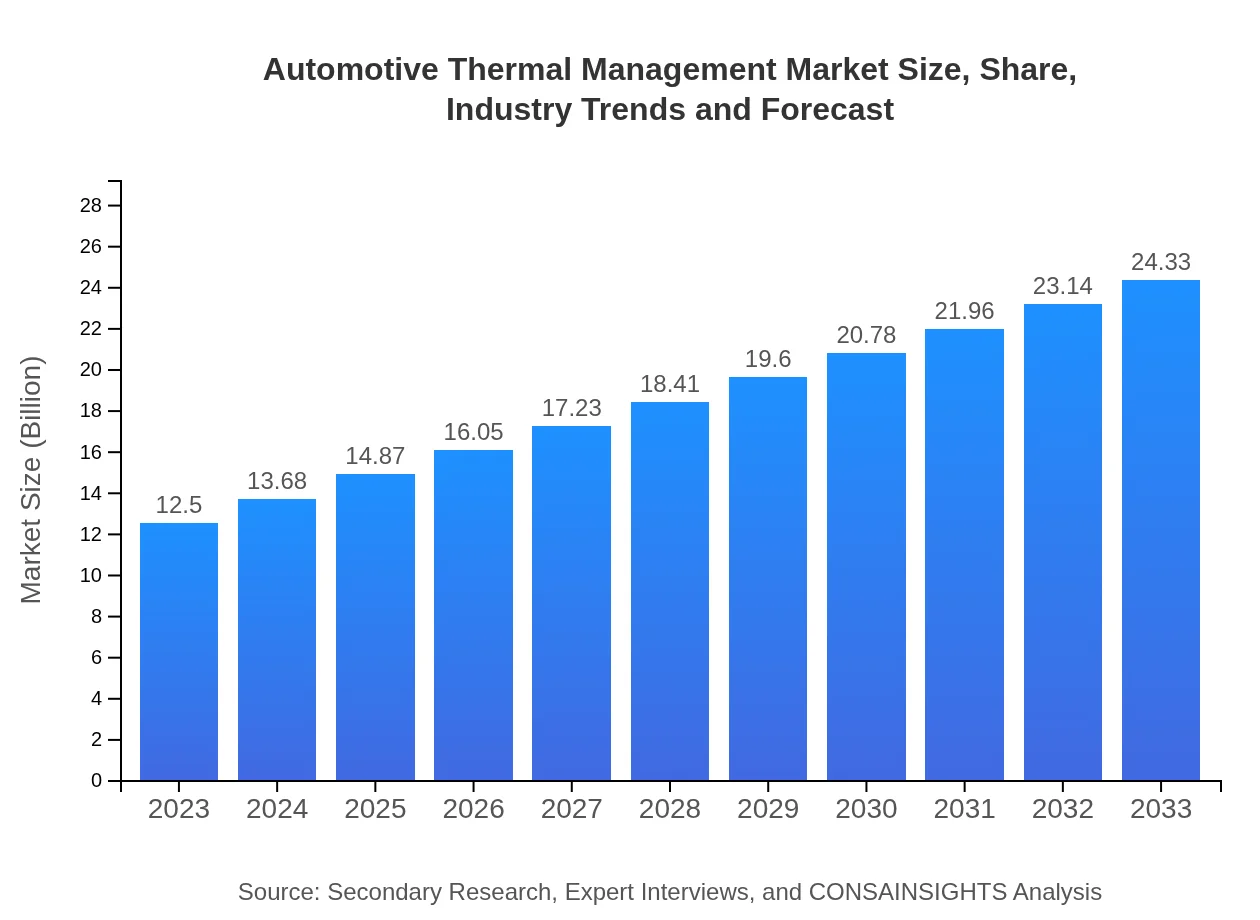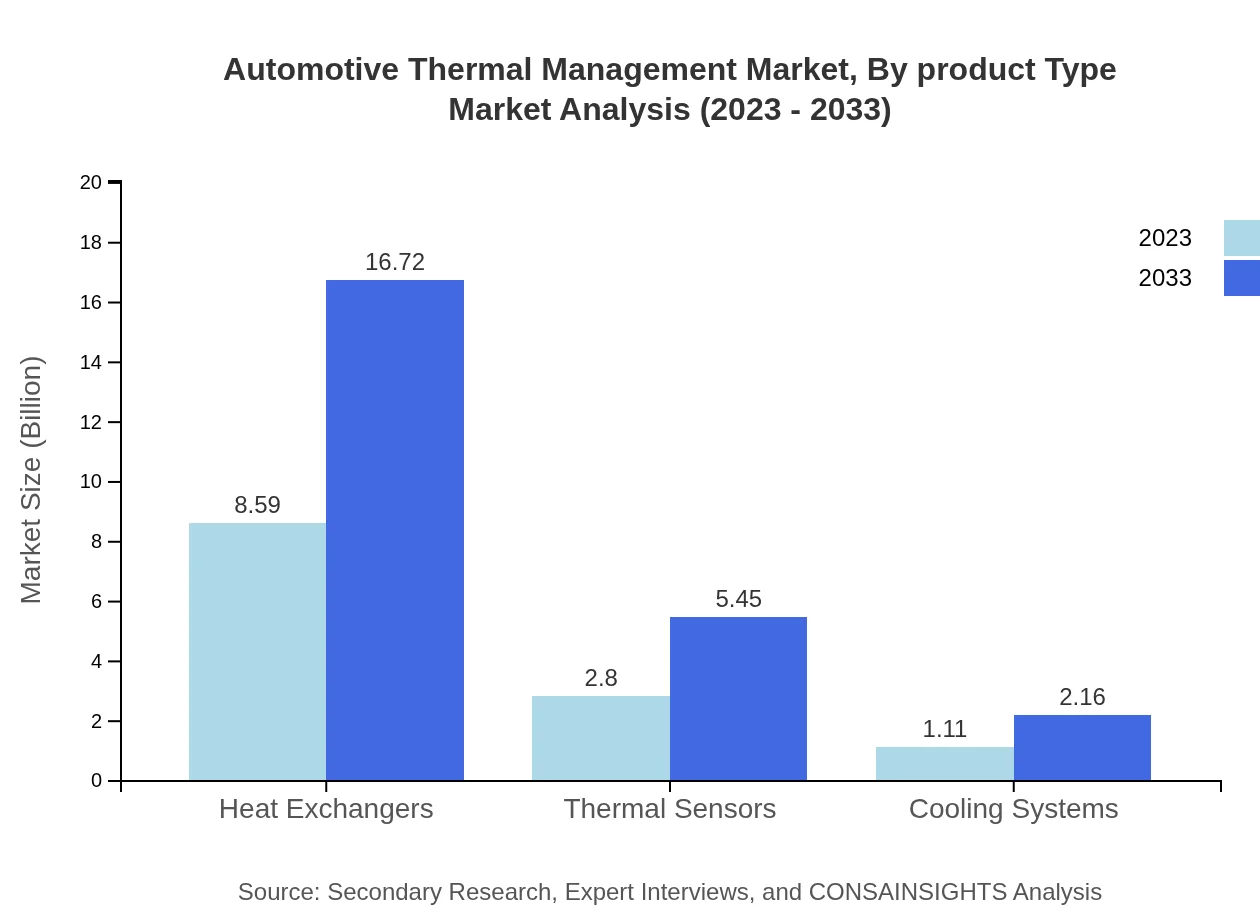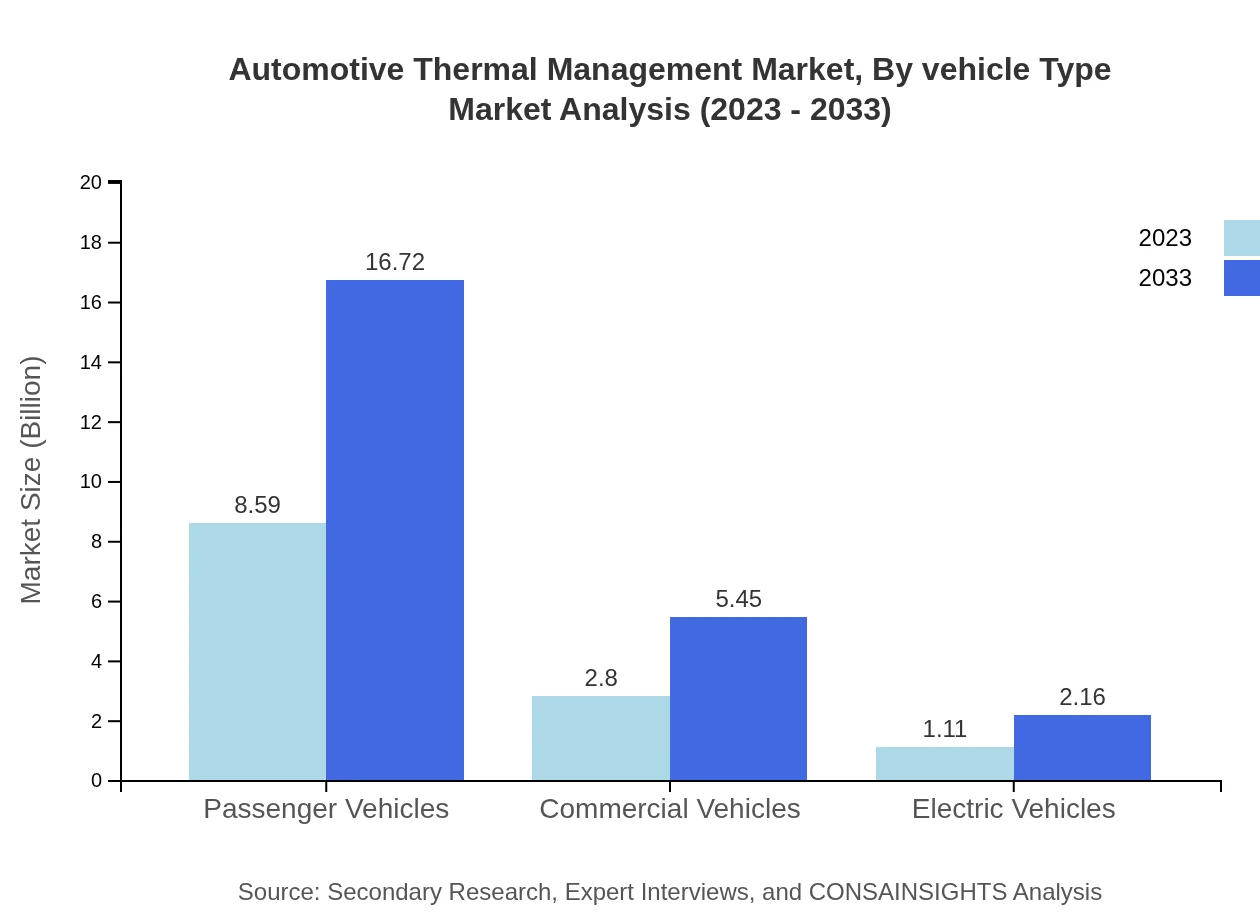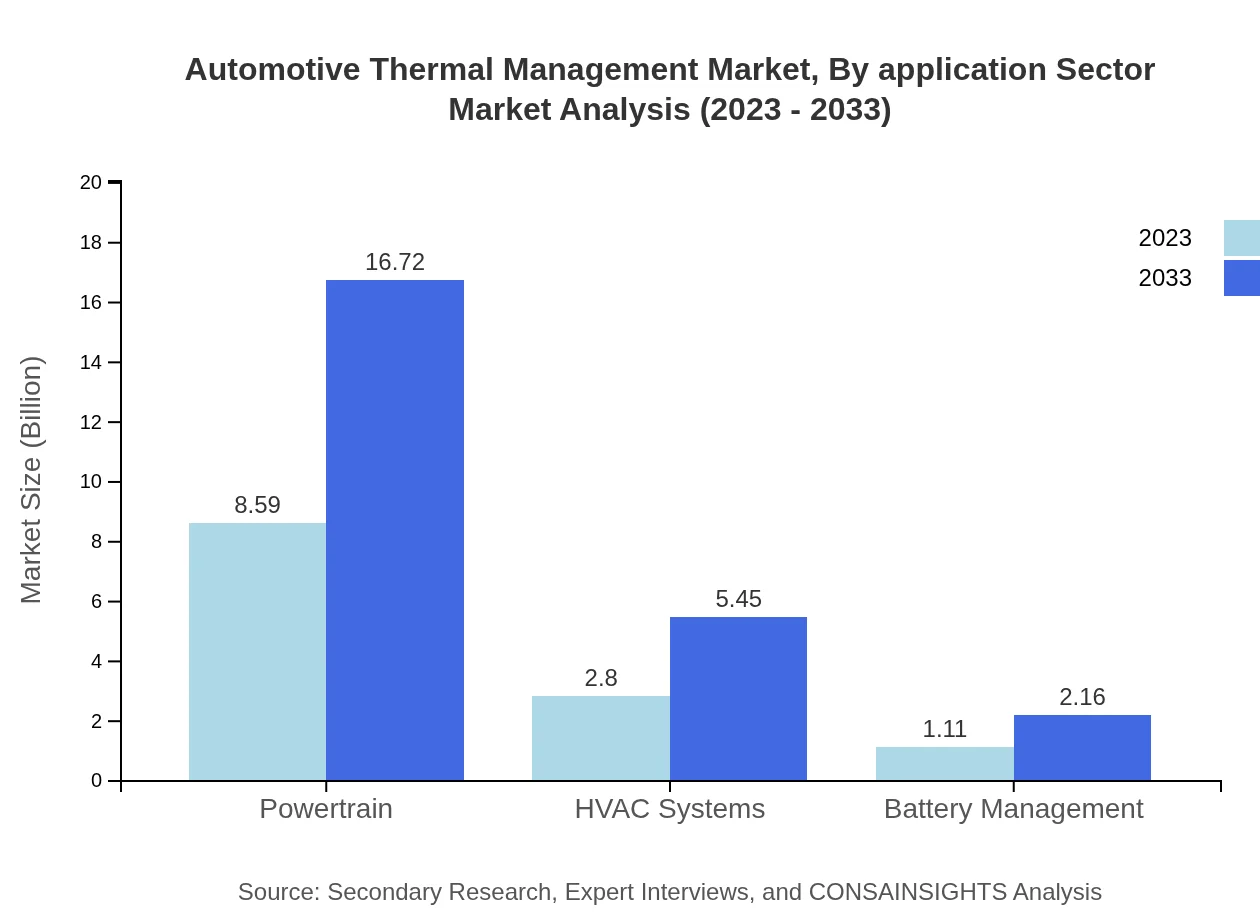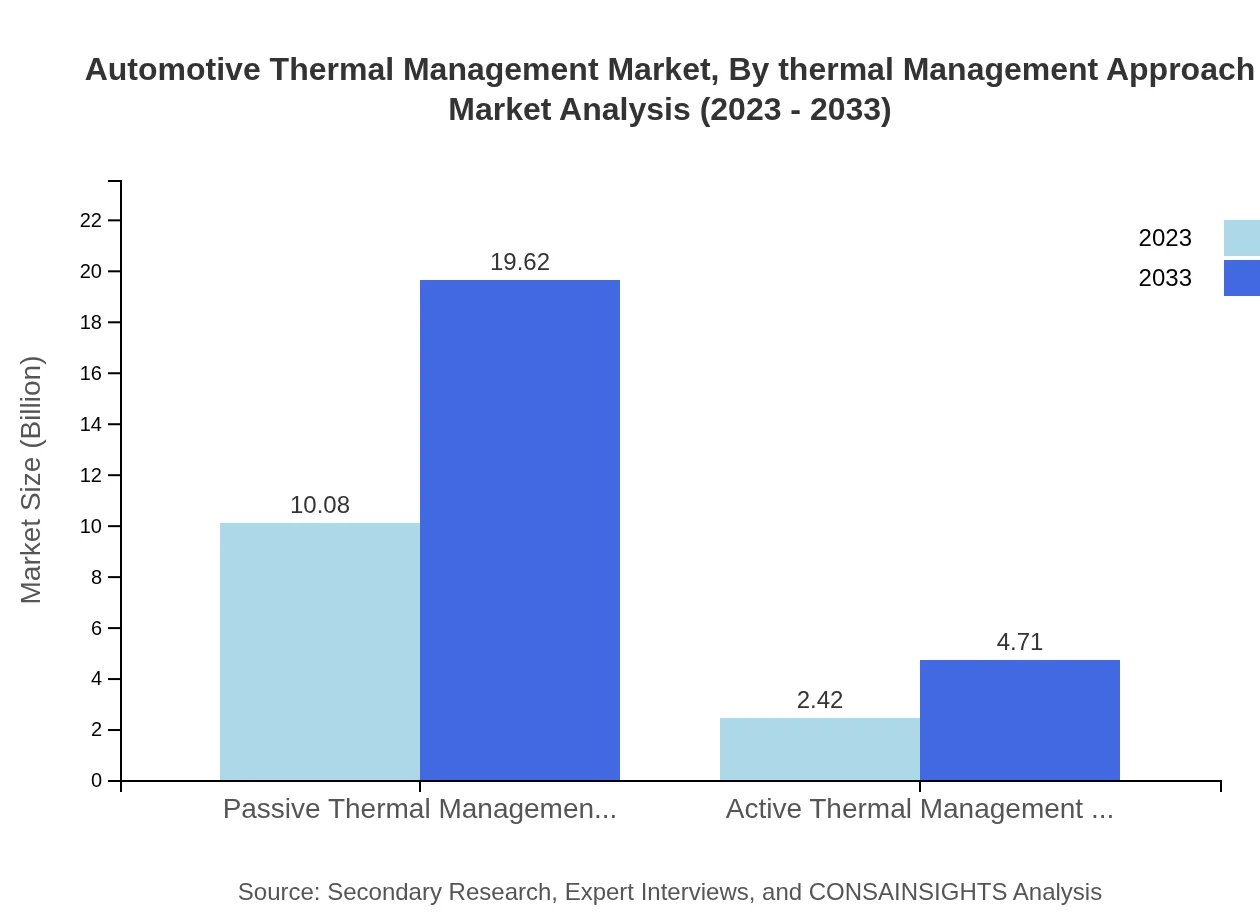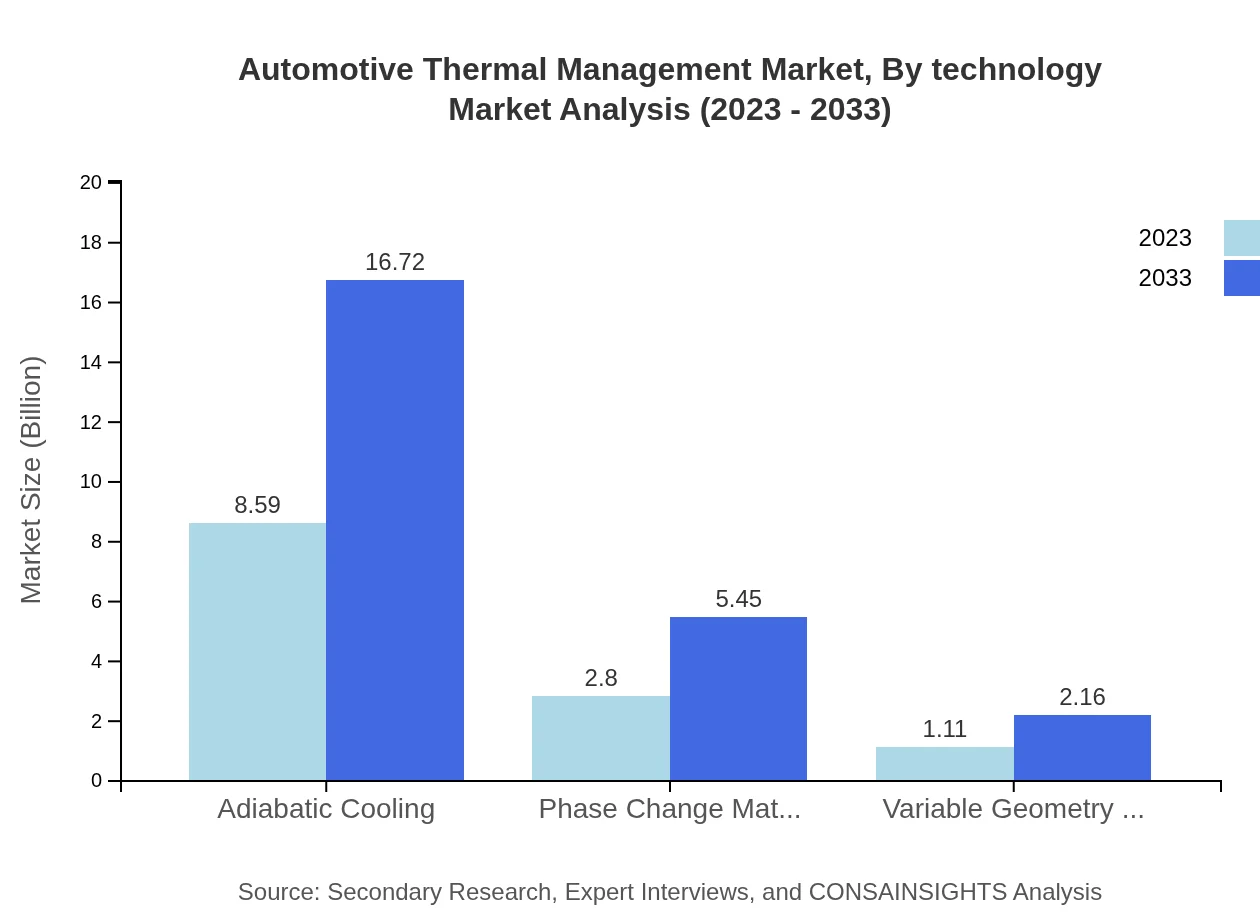Automotive Thermal Management Market Report
Published Date: 02 February 2026 | Report Code: automotive-thermal-management
Automotive Thermal Management Market Size, Share, Industry Trends and Forecast to 2033
This report provides an in-depth analysis of the Automotive Thermal Management market, covering key insights, market dynamics, segmentation, and future forecasts from 2023 to 2033.
| Metric | Value |
|---|---|
| Study Period | 2023 - 2033 |
| 2023 Market Size | $12.50 Billion |
| CAGR (2023-2033) | 6.7% |
| 2033 Market Size | $24.33 Billion |
| Top Companies | Denso Corporation, Valeo, Mahle GmbH, Continental AG, Bosch |
| Last Modified Date | 02 February 2026 |
Automotive Thermal Management Market Overview
Customize Automotive Thermal Management Market Report market research report
- ✔ Get in-depth analysis of Automotive Thermal Management market size, growth, and forecasts.
- ✔ Understand Automotive Thermal Management's regional dynamics and industry-specific trends.
- ✔ Identify potential applications, end-user demand, and growth segments in Automotive Thermal Management
What is the Market Size & CAGR of Automotive Thermal Management market in 2023?
Automotive Thermal Management Industry Analysis
Automotive Thermal Management Market Segmentation and Scope
Tell us your focus area and get a customized research report.
Automotive Thermal Management Market Analysis Report by Region
Europe Automotive Thermal Management Market Report:
Europe's automotive thermal management market is projected to increase from $3.57 billion in 2023 to $6.95 billion by 2033. The region is advancing rapidly in EV adoption, bolstered by government incentives towards sustainable transportation.Asia Pacific Automotive Thermal Management Market Report:
The Asia Pacific region leads the automotive thermal management market, projected to grow from $2.38 billion in 2023 to approximately $4.62 billion by 2033, fueled by increasing vehicle production and the rising demand for electric vehicles.North America Automotive Thermal Management Market Report:
North America holds a significant share, with the market value expected to grow from $4.68 billion in 2023 to $9.11 billion by 2033. The robust growth in this region is attributed to the electrification of the automotive sector and stringent emission regulations.South America Automotive Thermal Management Market Report:
In South America, the automotive thermal management market is expected to expand from $0.97 billion in 2023 to $1.90 billion by 2033, driven by advancements in automotive manufacturing technology and growing urbanization.Middle East & Africa Automotive Thermal Management Market Report:
The Middle East and Africa market is anticipated to grow from $0.90 billion in 2023 to $1.75 billion by 2033, driven by infrastructure development and an uptick in automotive manufacturing activities in countries like South Africa.Tell us your focus area and get a customized research report.
Automotive Thermal Management Market Analysis By Product Type
In 2023, the market for passive thermal management systems is valued at $10.08 billion, expected to rise to $19.62 billion by 2033, capturing 80.63% share. Active thermal management systems, starting at $2.42 billion, will reach $4.71 billion, holding 19.37% share. The leading products remain heat exchangers and HVAC systems.
Automotive Thermal Management Market Analysis By Vehicle Type
Passenger vehicles dominate the market with a size of $8.59 billion in 2023, projected to double by 2033. Conversely, commercial vehicles stand at $2.80 billion, expected to rise to $5.45 billion, and electric vehicles begin at $1.11 billion, forecasted to grow to $2.16 billion by 2033.
Automotive Thermal Management Market Analysis By Application Sector
The Automotive Thermal Management market has significant applications in the powertrain sector, estimated at $8.59 billion in 2023, and expected to reach $16.72 billion by 2033 with a market share of 68.74%. Other notable applications include HVAC and battery management systems.
Automotive Thermal Management Market Analysis By Thermal Management Approach
Thermal management approaches in 2023 show a robust presence of adiabatic cooling technologies at 68.74% market share. The segment size is projected from $8.59 billion to $16.72 billion by 2033, with active thermal management systems serving a critical supporting role.
Automotive Thermal Management Market Analysis By Technology
The technology segment is seeing notable advancements with growing investments in phase change materials which move from $2.80 billion in 2023 to $5.45 billion. The share here remains at 22.4%, while thermal sensors also contribute greatly to the innovation landscape.
Automotive Thermal Management Market Trends and Future Forecast
Tell us your focus area and get a customized research report.
Global Market Leaders and Top Companies in Automotive Thermal Management Industry
Denso Corporation:
A leading global automotive supplier, Denso focuses on advanced thermal management systems, particularly for electric and hybrid vehicles.Valeo:
Valeo is renowned for its innovative thermal management solutions, contributing significantly to efficiency and performance enhancements in modern vehicles.Mahle GmbH:
Specializing in engine components and thermal management, Mahle offers a wide range of vehicle cooling and heating products.Continental AG:
Continental provides various automotive technologies, including thermal management systems aimed at improving vehicle comfort and performance.Bosch:
As a key player in the automotive market, Bosch develops comprehensive thermal management solutions, integrating sensors and management systems for both conventional and electric vehicles.We're grateful to work with incredible clients.









FAQs
What is the market size of automotive thermal management?
The automotive thermal management market is projected to grow from $12.5 billion in 2023 to larger values by 2033, with a CAGR of 6.7%. This growth reflects the increasing demand for efficient thermal systems in vehicles.
What are the key market players or companies in the automotive thermal management industry?
Key players in the automotive thermal management market include leading automotive manufacturers and suppliers specializing in thermal systems, components, and solutions, focusing on innovative technologies to maintain optimal temperatures and improve vehicle performance.
What are the primary factors driving the growth in the automotive thermal management industry?
Driving factors for the automotive thermal management market include increasing vehicle production, heightened focus on fuel efficiency, rising demand for electric vehicles, and stricter emissions regulations pushing for advanced thermal management solutions.
Which region is the fastest Growing in the automotive thermal management market?
The fastest-growing region in the automotive thermal management market is North America, expected to grow from $4.68 billion in 2023 to $9.11 billion by 2033, showcasing a significant increase in automotive innovation and adoption of advanced thermal systems.
Does ConsaInsights provide customized market report data for the automotive thermal management industry?
Yes, ConsaInsights offers customized market report data tailored to clients' specific needs in the automotive thermal management industry, providing insights into market dynamics, trends, and forecasts to support strategic decision-making.
What deliverables can I expect from this automotive thermal management market research project?
Deliverables from the automotive thermal management market research project include detailed reports, market segmentation analysis, regional trends, competitive analysis, and actionable insights to identify opportunities and challenges within the industry.
What are the market trends of automotive thermal management?
Current trends in the automotive thermal management market encompass the growing integration of advanced cooling technologies, enhanced focus on electric vehicle thermal management, and innovations aimed at improving energy efficiency and reducing emissions across vehicle fleets.

